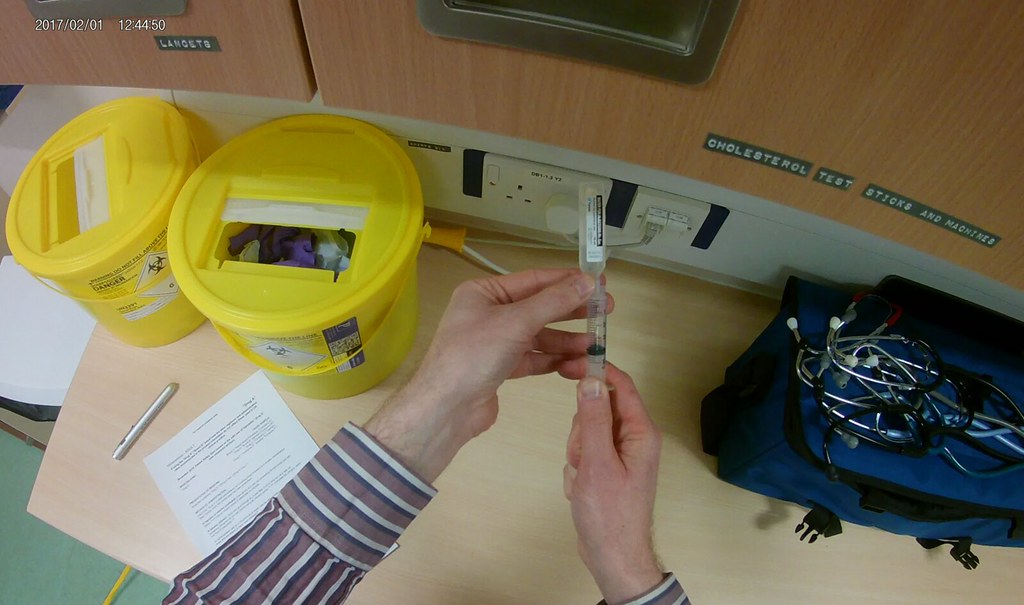Dr Matthew Jones, Senior Lecturer in the Department of Life Sciences, reflects on the actions he took to ensure that his study into the safety of intravenous medicines administration, complied with ethical guidance.
About the study
Up to half of intravenous doses are prepared or given incorrectly, which can harm patients. To help prevent these mistakes, the NHS produces the Injectable Medicines Guide (IMG). This tells staff how to prepare each injection correctly. However, some people thought that the IMG was confusing and could therefore cause mistakes. We designed a project to find out whether user testing could improve the IMG to reduce the number of errors when giving intravenous medicines. Part of the project involved asking nurses working on their usual hospital ward to give a dose of a placebo drug to a rubber dummy simulating a patient’s arm. The participants were randomly given a new or old version of the IMG to help them. The researcher observed the participant and made a note of any mistakes made. Any nurse who made a mistake was then interviewed to find out why.
Ethical issues to consider
- Working with a ‘gatekeeper’ (ward managers who would provide information and consent forms to their nurses in advance of the study)
- Protecting patient safety while staff participated in the study
- Consent of participants
- Anonymity of participants
- The right to withdraw
- Duty of care
- Data security/storage
Mitigating actions
- Obtaining ethical opinion firstly from REACH, then from the HRA
- Obtaining advice on ethical issues from a stakeholder advisory group
- Ensuring that participants were informed, and documentation was clear
- Risk assessing to ensure duty of care to participants and patients
- Putting in place SOPs
- Creation and maintenance of a Data Management Plan
Lessons learnt
For this research, a stakeholder advisory group was formed. A wide variety of healthcare professionals were members of the group. This proved incredibly useful as they were consulted throughout the design of the study and were able to advise on aspects of ethics, safety, and feasibility at all stages.
The research was being carried out in NHS hospitals with NHS staff, but not with patients. This meant that it needed to go through the NHS system, but the NHS research ethics committees didn’t want to see it. Therefore, we first went through REACH and then through the HRA. This meant that it was a different approach to a project that involves patients. Everything had to be explained clearly at all stages.
Data management was important to maintaining confidentiality and anonymity. Video recordings were made of the simulated injections, to ensure that the researcher’s observations were accurate. These recordings were taken by asking participants to wear a Go-Pro camera. This ensured that only their arms and hands were visible. Other considerations included the encryption of data files and use of secure data storage facilities.
Further reading
The full article can be found here:
